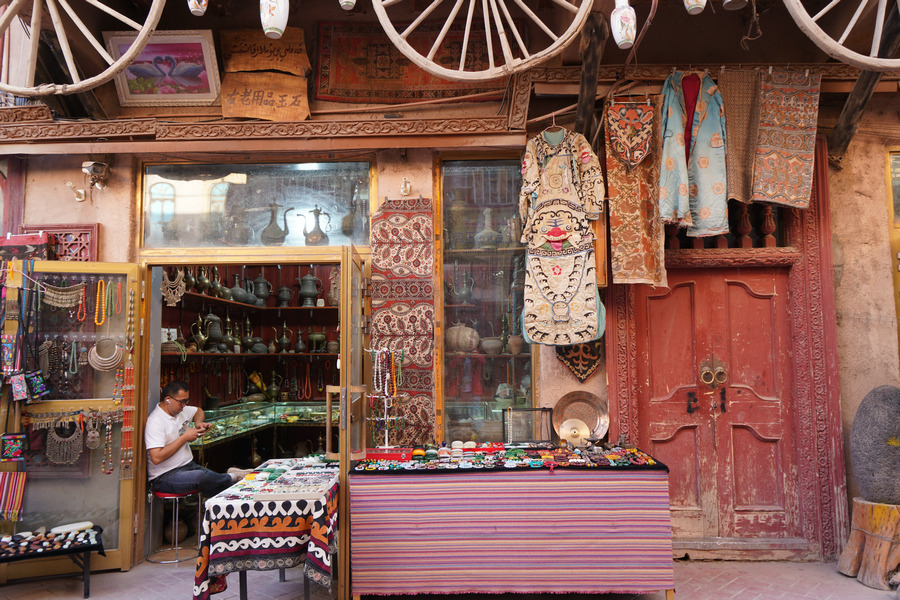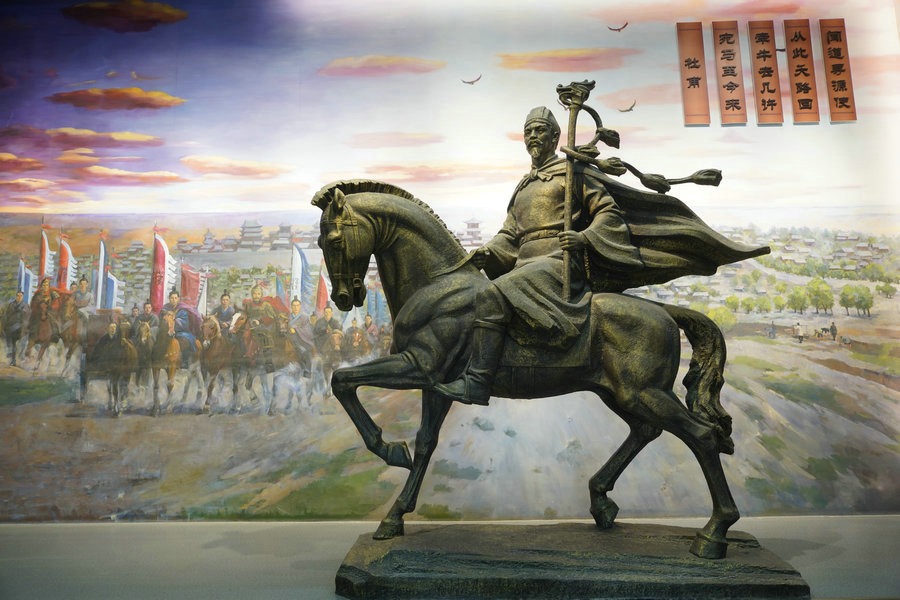China-US tourism to fly high with stronger cooperation


He believes it's equally important for Chinese visitors to experience how the Chinese are represented in US culture and local communities and learn about the city's history and diverse cultures and cuisines. "We're putting a lot of emphasis on China simply because of the economic side of this destination and the relationships we have. Washington has about 180 embassies and the Chinese embassy is one of the largest," he says, adding that his team tries to capitalize on its resources to welcome the Chinese market and educate the American market about Chinese culture.
At the summit, Chinese tour operators also showed their endeavors to customize experiences for US travelers.
Zhou Xiaoguang, president of China Odyssey Tours, says that although the number of US travelers to China this year through the company is expected to reach about 40 percent that of 2019 due to limited flight capacity, the number of returning US travelers has significantly increased.
"We speculate that this is primarily because these guests are more interested in China, and some hold 10-year Chinese tourist visas," he says.
Zhou points out that more cost-effective tour options have been developed to meet the needs of price-sensitive US customers following the pandemic.
For high-end travelers who seek exceptional travel experiences, more unique and experiential products will be offered, he adds.
Given that many US travelers might transit through a third country before coming to China, for example, via Seoul or Tokyo, Zhou says his company will develop some travel products that include China's neighboring countries to meet the needs of American guests before entering China.
Kevin Yeung Yun-hung, secretary for Culture, Sports and Tourism of the Hong Kong Special Administrative Region government, says since the cross-border tourism industry resumed in February last year, about 800,000 American travelers have visited Hong Kong. In 2023, the city received a total of 36 million tourist visits.
A center for cultural, artistic and educational exchanges between China and the world, Hong Kong's rich Chinese culture has been highly attractive to international visitors, Yeung notes, adding that the city will leverage local characteristics to attract more overseas tourists.
Additionally, to give overseas tourists a sense of familiarity with Hong Kong, the city has actively introduced foreign brands, such as Disneyland, he says. In terms of an international and trendy culture, Hong Kong attracts major international events and brands, such as Art Basel Hong Kong and the American pop culture event ComplexCon.
The city has leveraged these culturally rich tourism products to draw international tourists, he says.
Sun Bowen, executive secretary-general of Trip.com Group's research institute, says inbound travel orders via the online travel agency, a major tourism platform in China, quadrupled in the first three months over the same period last year.
"Focusing on China-US tourism, we see that many places in China intrigue American visitors," Sun says.
Among the American travelers coming to China, those born in the 1980s and '90s make up about half and their main destinations include major cities like Shanghai, Beijing, Guangdong province's Guangzhou and Shenzhen, Sichuan province's Chengdu, Jiangsu province's Nanjing, and Zhejiang province's Hangzhou, he says. The top attractions for these visitors include Shanghai Disneyland, Universal Beijing Resort, the Terracotta Warriors in Xi'an and the Chengdu Research Base of Giant Panda Breeding.
For Chinese tourists traveling to the US, the main demographic consists of those born in the 1970s and '80s. "They typically visit major cities such as Los Angeles and San Francisco in California, New York, Boston in Massachusetts and Orlando, Florida," Sun says.
Overall, Trip.com reports that the recovery of inbound tourism from the US has reached about 60 percent of the levels seen in 2019. There is still room for growth, especially as flight routes expand, he says.
To make things easier for inbound travelers, Trip.com has partnered with the Emperor Qinshihuang's Mausoleum Site Museum in Xi'an to establish an integrated service platform that enables international visitors to purchase tickets directly onsite through an international ticketing system.
Sun proposes similar cooperation with other domestic destinations to help inbound travelers make tour appointments and payments.
Liu Shijun, vice-chairman of the World Tourism Alliance, says it is precisely because there are still various issues in China-US tourism development that relevant authorities and industry representatives of both countries should engage in candid discussions and in-depth exchanges.
"This will help both sides face and resolve the issues together …for the future of both countries, paving the way for a smoother path ahead," Liu says.
Contact the writer at [email protected]

































